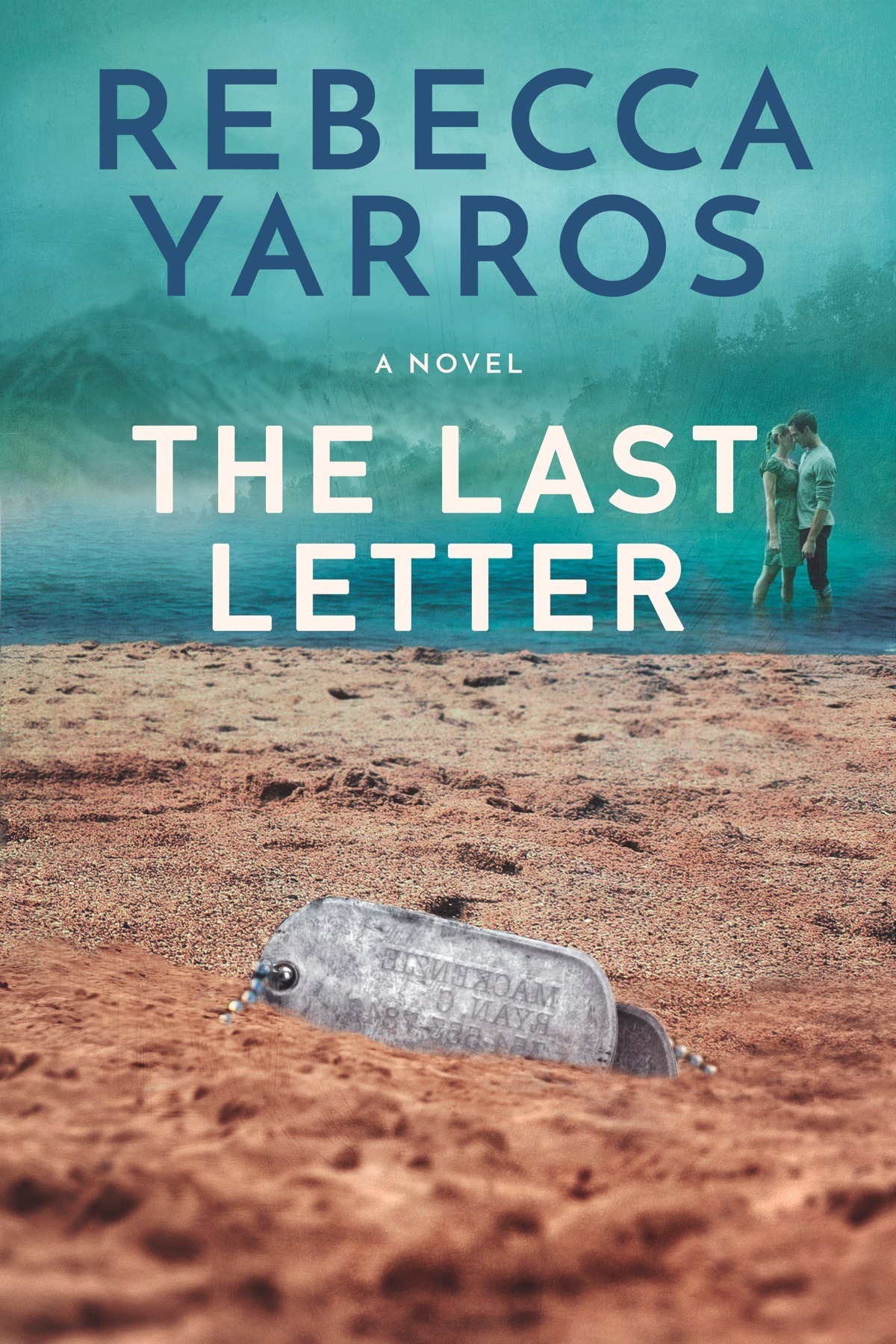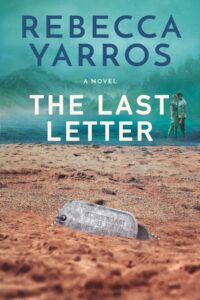Book Summary
In The Last Letter, Rebecca Yarros weaves an emotionally charged story that begins with a dying soldier’s request. When Ryan MacKenzie is killed in action, his final letter asks his best friend and fellow soldier Beckett Gentry to care for his sister Ella—a single mother of twins in Telluride, Colorado. Unbeknownst to Ella, she’s already formed a deep bond with Beckett through letters exchanged under his call sign “Chaos.” What follows is a poignant exploration of love, loss, and the unbearable weight of secrets as Beckett enters Ella’s life incognito, helping her navigate her daughter Maisie’s cancer diagnosis while grappling with his guilt over Ryan’s death.
Yarros balances heart-wrenching tragedy with tender romance, crafting a narrative that oscillates between the raw pain of grief and the quiet hope of new love. The epistolary structure—with each chapter opening with their past correspondence—adds layers of dramatic irony and emotional depth. While some critics argue the novel piles on too much tragedy, most agree it’s a testament to Yarros’ ability to make readers sob while still rooting for the characters’ resilience.
Key Themes
At its core, The Last Letter is about trust forged through vulnerability. Ella’s abandonment issues (her ex-husband left when she became pregnant, and her brother died in service) clash with Beckett’s self-imposed isolation from a childhood in foster care. Their relationship develops through shared wounds—Ella’s fear of being left again and Beckett’s belief that he’s “not capable of love.” The letters become a safe space for honesty, contrasting with their in-person hesitations, illustrating how intimacy requires both emotional risk and consistency.
The novel also interrogates parental love and sacrifice. Ella’s struggle with Maisie’s neuroblastoma (a 10% survival rate at diagnosis) forces brutal questions about medical costs versus hope. Beckett’s formal adoption of the twins—initially a pragmatic move for insurance—becomes a symbolic gesture of unconditional commitment. Yarros doesn’t shy from showing how illness fractures families, but she also highlights the healing power of chosen family.
What Makes It Unique
The Last Letter stands out for its unflinching emotional brutality. Unlike many romances that cushion readers from lasting trauma, Yarros includes a controversial late-book tragedy that polarized readers. Some praised its realism about life’s unpredictability, while others called it unnecessary shock value. This risk mirrors Yarros’ willingness to break genre conventions—the HEA here is bittersweet, earned through tears rather than tropes.
The novel’s military authenticity also distinguishes it. Beckett’s PTSD and guilt over Ryan’s death reflect Yarros’ own marriage to a veteran. Details like Beckett’s aversion to swearing and the use of “Chaos” as his call sign ground the story in lived experience rather than romanticized heroism.
Reader Reactions
Readers overwhelmingly describe the book as emotionally devastating but unforgettable. Goodreads reviewers highlight its ability to make you sob then swoon, with many admitting they needed recovery time after certain plot points. The letters between Ella and Chaos are frequently cited as the highlight, praised for their poetic quality.
Criticism focuses on pacing and tonal whiplash. Some note the children sometimes feel like plot devices with unrealistic maturity, while others argue certain lines are jarringly out of place. Despite this, even negative reviews concede the book’s emotional impact lingers.
About the Author
Rebecca Yarros is a New York Times bestselling author and self-proclaimed hopeless romantic married to a military pilot for over 20 years. Her personal connection to military life infuses her work with authenticity. A mother of six, Yarros often explores themes of parenthood and resilience—Ella’s struggles with Maisie’s illness reportedly drew from Yarros’ friends’ experiences.
Yarros’ background in romance shines in her ability to balance heat with heartbreak. While The Last Letter is darker than her usual fare, it retains her signature swoon-worthy heroes and emotionally complex heroines. Her recent success with Fourth Wing has brought new attention to this earlier work.
Memorable Quotes
“If you’re reading this, well, you know the last-letter drill. You made it. I didn’t. Get off the guilt train.”
“This wasn’t heartbreak. Or sorrow. It was the utter desolation of my soul.”
“I think we needed what happened… so I would know his past and we’d be able to work on it together.”

